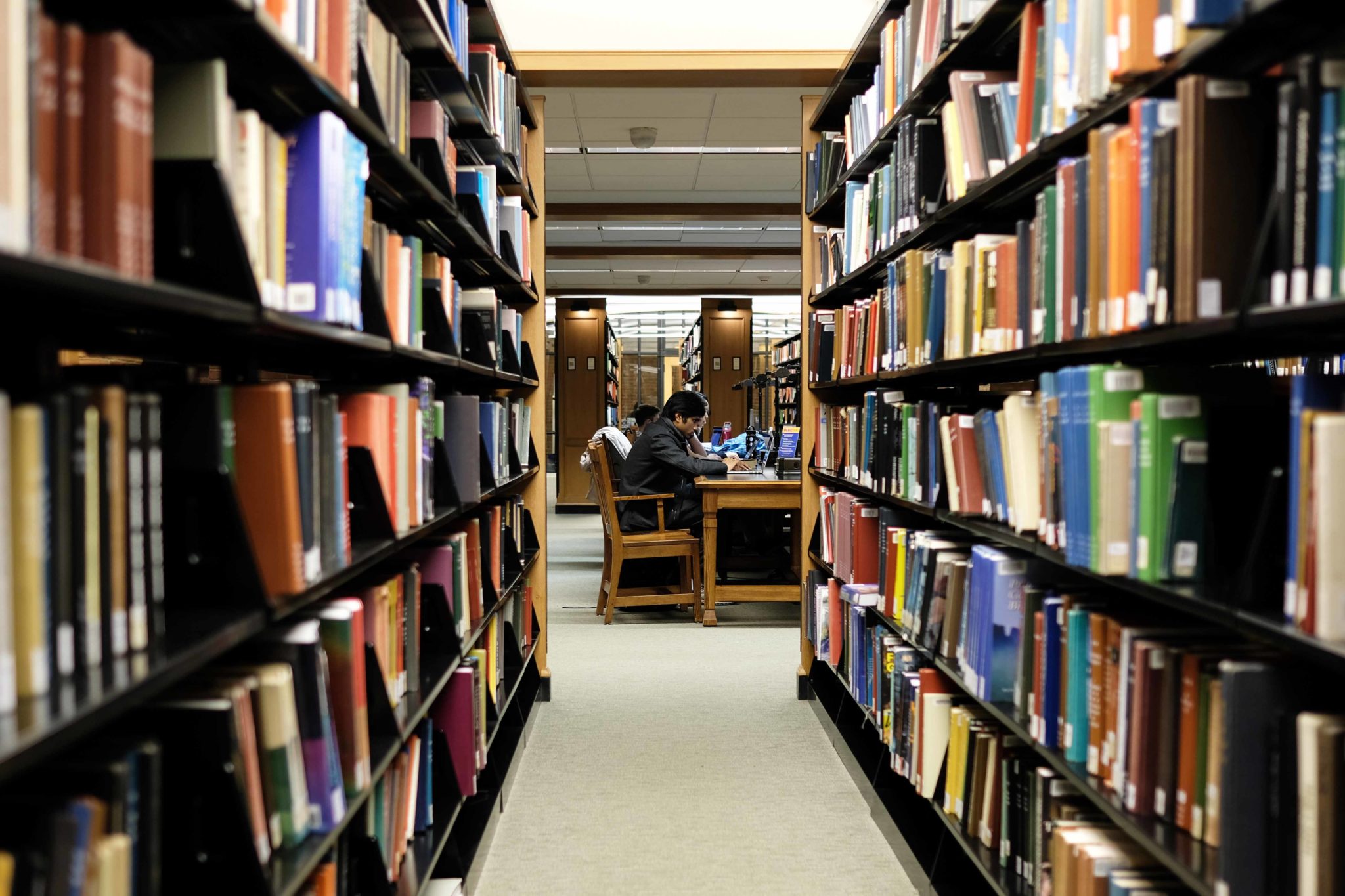
Eric Wang
On a bright September afternoon, Ari Nagle ’23 stood in the Silliman College courtyard, money in his hand.
“I didn’t know who I was looking for,” Nagle said. “I just stood in the middle of the courtyard, waiting for somebody to come out.”
Nagle was looking for a person who was selling him a microeconomics textbook through the Yale Textbook Exchange Facebook group. Though he prefers paper, he said he could not find a hard copy for sale, so he settled for obtaining a PDF version of the book for a significantly reduced price. He added that he was “definitely” not going to buy it for the full cost.
To aid students like Nagle, this year Bass Library is piloting a program that will allow Yalies to order textbooks through Bass and then check them out in two-hour increments. Although textbooks are not allowed to leave the library, students can renew them as often as they desire, so long as no one else is waiting to use the textbook, according to Reserves Services and Resource Sharing Librarian Jessica Bower.
“For our pilot, we are purchasing at least one of every title that’s being requested,” Bower explained. According to Bower, students have already requested 30 textbooks in 1 1/2 weeks.
She added that later, the library may purchase several copies of textbooks for large and popular lectures. Bower estimates that requests for textbooks the library does not currently hold will take seven business days to fulfill.
Director of Undergraduate Programs at Yale University Library Emily Horning said that students have been requesting that such a program be implemented “for years.” But since textbooks are so frequently updated, the library only purchased them if faculty members specifically requested them, she explained.
The program comes jointly with the reopening of Bass Library after renovations.
“We wanted to do something like this in conjunction with the reopening of Bass Library, and we thought it was a good way to let the students and the faculty know we were trying to think of new ways to support students,” Horning said, adding that the library administration was “trying to be mindful” of the financial burden that textbooks often pose for students.
Horning noted that the service will be available not just for undergraduate students, but also for Yalies hailing from across the University.
Bower, who brought up the program idea to a Bass renovation committee, said that she heard of a similar student-driven textbook reserves initiative at Cornell University that started in the fall of 2018 and decided to bring the project to Yale.
She added that the library would like to expand the program to other University locations in the future and is looking for feedback from people who use the textbooks during the pilot.
Using books from the Bass textbook reserves is not the only way for Yalies to cut down on textbook spending. Kushal Dev ’20 started the Silliman Textbook Library in 2017. According to Silliman Head of College Laurie Santos, the library now has almost 1,000 donated textbooks available to students. Santos added that she thinks that the Bass reserve program is “a fantastic idea.”
“I’ve seen cases where students need over $1,000 just to get one semester’s worth of textbooks, which can feel both prohibitively costly and emotionally overwhelming,” Santos said. “I’ve also heard cases where students consider shying away from taking certain classes because they can’t afford the textbooks they need to learn that material.”
Dev told the News that he thinks first-generation and low-income students “deserve more than what Yale has given them thus far” and that other Yale institutions should also provide more resources to students — similarly to Silliman and Bass.
Students interviewed by the News have had a mixed response to the program.
Nagle and Sharon Li ’20 both said that they will “definitely use” the service.
But Will Acken ’22 said that since students cannot use the textbooks anywhere but in Bass, the library’s location and general atmosphere — with its fluorescent light bulbs and lack of windows — is a downside of the program.
Josh McKenzie ’23 echoed Acken’s sentiments, saying that although students can check out the books in successive intervals, he felt like “that’s still a hassle.”
Last year, the Yale College Council piloted its own two-hour test prep reserve system in Bass, which allows students to check out test prep resources for exams such as the LSAT, MCAT and GMAT.
Giovanna Truong | giovanna.truong@yale.edu







